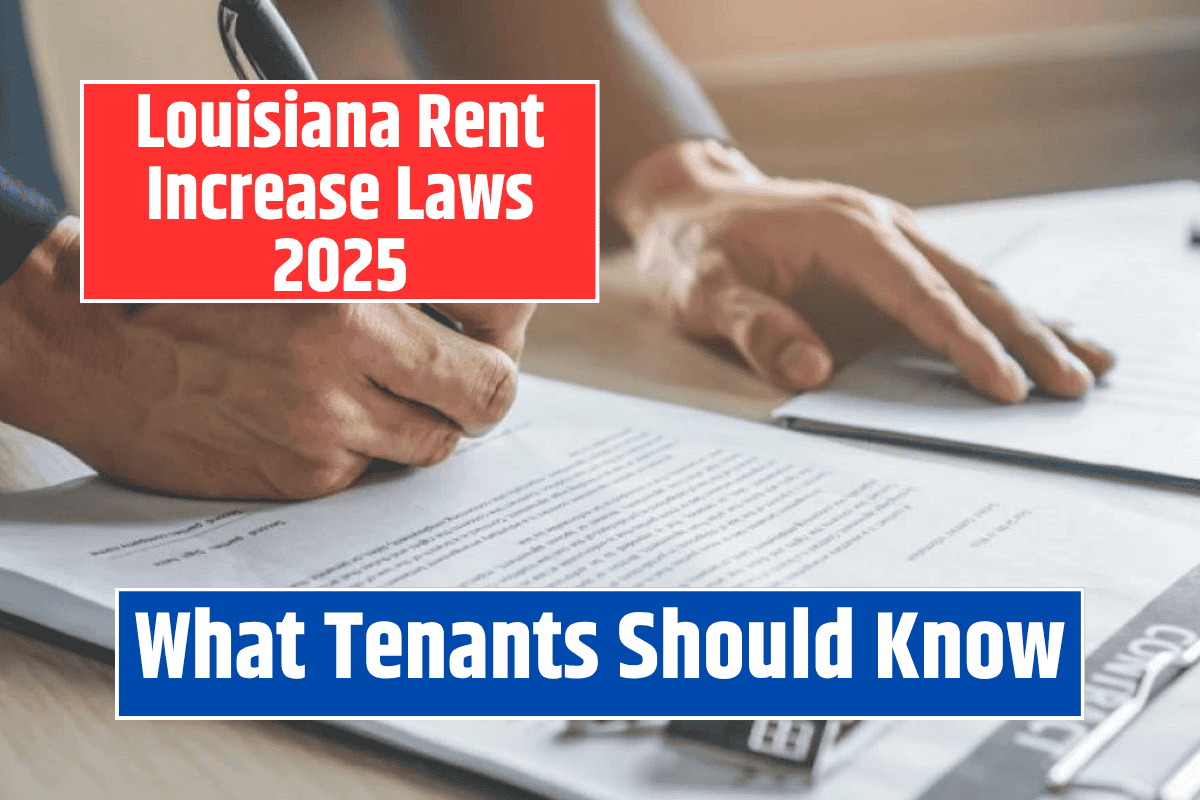Understanding Louisiana’s landlord-tenant laws is essential for both renters and property owners to maintain a fair and legal rental relationship.
In 2025, Louisiana remains a landlord-friendly state, which means there are fewer restrictions on how landlords manage rent, lease terms, and evictions.
This article outlines the most important aspects tenants need to know about rent increases and other key leasing rules in Louisiana.
Is Louisiana Landlord or Tenant-Friendly?
Louisiana is considered landlord-friendly, meaning state law offers minimal protections to tenants when compared to other states. There are no rent control laws, limits on security deposits, or mandated grace periods for late rent.
As a result, landlords have significant freedom in structuring lease terms, increasing rent, and initiating eviction processes.
Rent Increase Rules in 2025
No Rent Control
Louisiana does not impose rent control laws. This means landlords can charge any amount of rent they wish, regardless of location or market rates.
No Notice Requirement
Unlike many other states, Louisiana does not require landlords to give tenants notice before increasing rent—unless the lease agreement includes such a clause. This gives landlords the flexibility to raise rent with little warning once a lease term ends.
Lease Type Matters
For fixed-term leases (e.g., one year), rent cannot be increased until the lease ends. For month-to-month or week-to-week leases, landlords may raise rent once the term ends, but again, state law does not require prior notice unless stated in the lease.
Rent Payments, Late Fees, and Grace Periods
Rent Terms
Rent is typically paid on a monthly basis, though week-to-week and yearly arrangements are also allowed. The rent amount and due date should be clearly outlined in the lease agreement.
Late Fees
Late fees are allowed in Louisiana, but they must be clearly specified in the lease. There is no legal limit on how much a landlord can charge for late rent or bounced checks.
Grace Periods
There is no required grace period in Louisiana. Landlords can charge late fees as early as the day after the rent is due if no grace period is included in the lease.
Security Deposits
There is no maximum limit on security deposits in Louisiana. However, the amount should be reasonable and clearly stated in the lease. Landlords must return the deposit within one month after the tenant moves out, unless the property was abandoned without notice. Deductions can be made for unpaid rent, damage, or lease violations.
Tenant and Landlord Responsibilities
Tenant Rights
Tenants are entitled to:
Live in a safe and habitable property
Request repairs for damages beyond normal wear and tear
Exercise “repair and deduct” rights if the landlord fails to act within a reasonable time
Due process in eviction cases
Tenant Duties
Tenants must:
Keep the rental unit clean
Avoid damaging the property
Respect neighbors and avoid disturbances
Landlord Obligations
Landlords are required to:
Maintain the property in livable condition
Provide essential services (e.g., plumbing, electricity, water, HVAC)
Make repairs promptly when notified
Lease Renewals and Termination
When a lease expires, it may be:
Renewed with new terms
Converted into a month-to-month agreement if no notice is given
Termination notice requirements:
5 days for weekly leases
10 days for monthly leases
30 days for yearly leases
Evictions require a 5-day notice to vacate for nonpayment of rent, lease violations, or illegal activity. Retaliatory evictions are not allowed.
Fair Housing and Other Protections
The Fair Housing Act prohibits discrimination based on:
Race, color, religion
National origin
Sex or gender
Disability
Familial status
Lock changes must be accompanied by written notice, and although there are no “right of entry” laws, it’s best practice for landlords to notify tenants before entering the property.
Louisiana’s rental laws give landlords a significant degree of control, especially when it comes to rent increases and lease terms. However, tenants still have rights regarding fair housing, habitability, and due process. To avoid legal conflicts, all lease agreements should be detailed, fair, and in compliance with state laws.












